Celebrating Women Closing the Gender Gap in Orthopedic Surgery
Four leading orthopedic surgeons from NewYork-Presbyterian and Columbia reflect on their own career paths and offer advice on finding success in male-dominated fields.
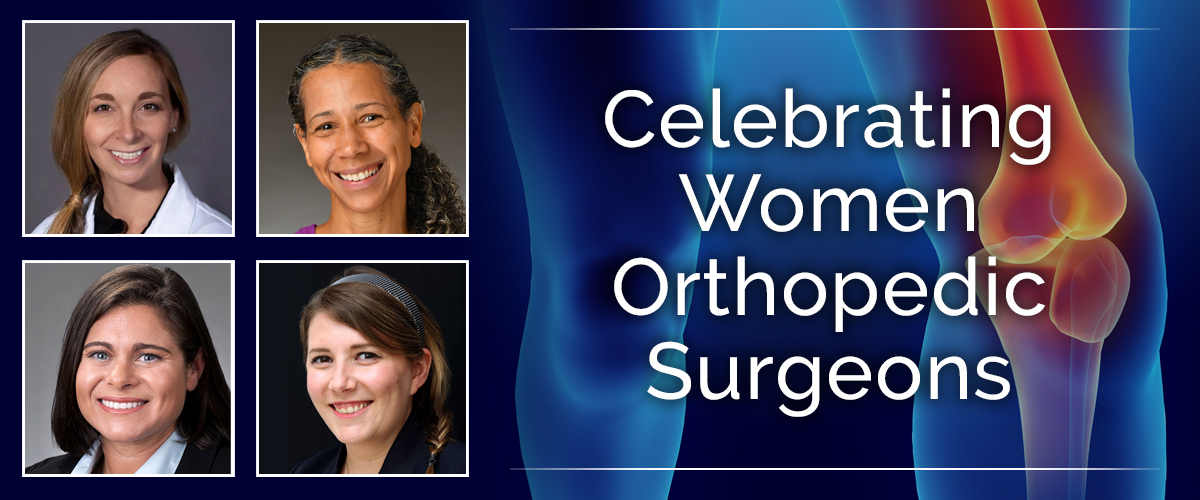
In 2019, for the first time ever, the majority of medical school students in the U.S. were women, according to the Association of American Medical Colleges. Despite this progress, in some areas of medicine, like orthopedic surgery, the gender gap is still significant. Approximately 6% of board-certified orthopedic surgeons are women, the lowest percentage of women across all medical fields.
Through strong mentorship and recruitment efforts, NewYork-Presbyterian and Columbia are helping to close the gender gap in orthopedics. Today, more than 30 percent of the orthopedic surgeons at NewYork-Presbyterian/Columbia are women. “We’re proud of the progress we’ve made, but more can be done to support diversity and increase representation in the field,” says Dr. Christen Russo, an orthopedic surgeon at NewYork-Presbyterian Brooklyn Methodist Hospital and assistant professor of Orthopedic Surgery at Columbia University Vagelos College of Physicians and Surgeons.
For Women’s History Month, Health Matters spoke to four leading women orthopedic surgeons from NewYork-Presbyterian and Columbia to learn what fueled their passion to enter orthopedics, and what advice they have for other women in male-dominated fields.
“Some of the finest surgeons I have had the pleasure of working with are women.”
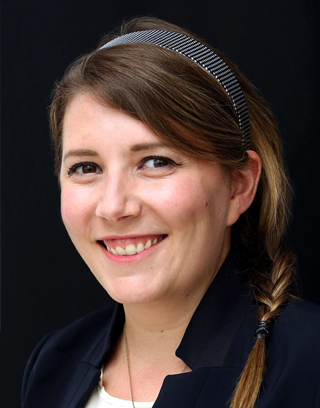
Dr. Katherine Rosenwasser
Dr. Katherine Rosenwasser, pediatric orthopedic surgeon at NewYork-Presbyterian Morgan Stanley Children’s Hospital, director of orthopedic medical student education and assistant professor of Orthopedic Surgery at Columbia University Vagelos College of Physicians and Surgeons.
How did you become interested in orthopedic surgery?
I was extremely fortunate because growing up, I had my father as an example of what the field of orthopedics has to offer. As an orthopedic surgeon, he encouraged me to pursue my interest in science and at no time made me feel as if my being female would hinder my ability to be a successful and fulfilled orthopedist. What has always drawn me to orthopedics is our profession’s ability to restore patients back to their desired level of functioning. Despite the stereotype of orthopedic surgeons as tall, strong male athletes, I have found that some of the finest surgeons I have had the pleasure of working with are women!
What advice do you have for other women interested in male-dominated fields?
My best advice for women is to not be discouraged by any preconceived notions of what the professionals in your field look like. In orthopedic surgery, the field has come a long way and is moving towards increased diversity and inclusion. My wonderful and supportive mentors did not all look like me when I got started – and that is okay – but now many of my colleagues do! It is an amazing time for women in orthopedics and myriad opportunities abound within our field. Women entering any field should feel invigorated by the powerful sense of camaraderie and fellowship that has been cultivated by their female predecessors, which will only strengthen with time.
“Any discouragement I experienced only caused me to dig my heels in deeper.”
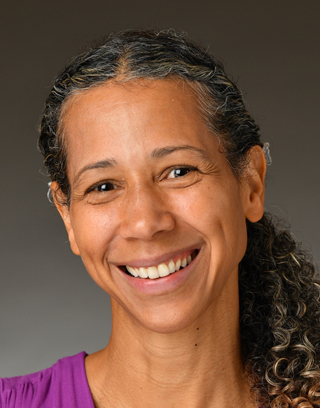
Dr. Wakenda Tyler
Dr. Wakenda Tyler, chief of the orthopedic oncology service at NewYork-Presbyterian/Columbia University Irving Medical Center and associate professor of orthopedic surgery at Columbia University Vagelos College of Physicians and Surgeons.
How did you become interested in orthopedic surgery?
My interest in orthopedic surgery started when my bone pathology professor in medical school, who ultimately became an important mentor in my life and career, encouraged me to consider orthopedic surgery because he recognized I was surgically inclined and very athletic. I didn’t realize it was a male-dominated field until later, when people kept asking me if I was sure I wanted to go into orthopedics, given the stereotype of orthopedic surgeons as alpha males. My mentor was a white male, but the gender gap didn’t fully register to me until I was doing clinical rotations in medical school and spending time with other attending physicians in the field. By then, my mind was set, and I wasn’t going to let anyone discourage me. In fact, any discouragement I experienced only caused me to dig my heels in deeper.
What advice do you have for women considering careers in historically male fields?
Do what makes you happy. Do not let folks tell you the lifestyle is too tough or, in the case of orthopedic surgery, which has the perception of requiring muscles and heavy lifting, that you’re too small. None of that is true. Find your passion and follow it. Every professional field will have obstacles. I’ve seen too many people regret their choices because they let someone talk them out of something.
Find a good mentor who will support you. That mentor does not have to be female; they just have to have your interest at heart. Becoming a successful orthopedic surgeon, like everything else, takes practice, so once you find your passion, keep practicing and improving throughout your life.
“Finding a career that fulfills you every day is more important than finding a career in which you will be in the majority.”
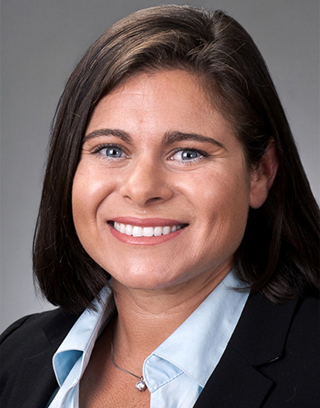
Dr. Nicole Belkin
Dr. Nicole Belkin, chief of orthopedic surgery and rehabilitation and regenerative medicine at NewYork-Presbyterian Hudson Valley Hospital and assistant professor of orthopedic surgery at Columbia University Vagelos College of Physicians and Surgeons.
How did you become interested in orthopedic surgery?
I’ve always been an athlete. I became interested in the field of orthopedics through my experience as a patient, having injured the ACL ligament in my knee in one leg in middle school and in the other leg in college. Being an athlete has helped me find a relatability to the orthopedic patient population, which is an attractive feature of the field. I also enjoy using my hands to build things and fix things, which is a major draw to the field of orthopedics. If I weren’t an orthopedic surgeon, I would probably be an engineer.
What advice do you have for other women interested in historically male fields?
My advice to women who might be interested in a particular profession but are intimidated by the current landscape is that regardless of stereotypes and historical trends, you have to follow your passions and pursue the career that satisfies you. Finding a career that fulfills you every day is more important than finding a career in which you will be in the majority.
“Never once did I think I should not go into orthopedic surgery because I was a woman.”
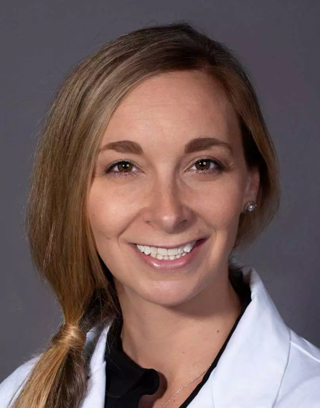
Dr. Christen Russo
Dr. Christen Russo, assistant attending physician in Orthopedic Surgery and Chair of Quality & Patient Safety for the Department of Orthopedic Surgery at New York-Presbyterian Brooklyn Methodist Hospital, and assistant professor of Orthopedic Surgery at Columbia University Vagelos College of Physicians and Surgeons.
How did you become interested in orthopedic surgery?
Orthopedic surgery found me. Orthopedic surgeons are kind of like the renaissance men and women of medicine, and it comes together as this awesome masterpiece. I embraced my love of math, science and art and excelled at a STEM high school, where there were equal numbers of men and women. I was an athlete growing up, and I became interested in sports injuries, working as an athletic trainer in high school and then at a bustling Division I college. I had my own orthopedic injury requiring surgery as a teenager and was exposed to one of the most passionate surgeons through that experience, which really gave me the push to pursue orthopedics. Never once did I think I should not go into orthopedic surgery because I was a woman.
What advice do you have for other women interested in orthopedics?
If you’re interested in orthopedic surgery, congratulations! This is a wonderful field with tremendous potential for advancement, technology and satisfaction. Regardless of what field you enter, write down why you love what you do and keep it somewhere handy. Reflect back on it from time to time because career paths can be long and sometimes feel like an obstacle course. You may meet people who try to discourage you; silence them. There are plenty of allies – both men and women – so find one and stick with them. Orthopedics and other fields will have more women in the future, and I assure you, you can be as feminine – or not – as you like and succeed in this male-dominated field. In orthopedics, Ladypods, as we like to call ourselves, are here to support the next generation, and we are fierce role models as mothers, partners, and leaders.
Read more about women making history in health care at NewYork-Presbyterian.
Additional Resources
For more on the orthopedic services available at NewYork-Presbyterian/Columbia, please click here or call 212-305-4565.
Click here to find out more about the pediatric orthopedic services at NewYork-Presbyterian Morgan Stanley Children’s Hospital or call 212-305-5475.
